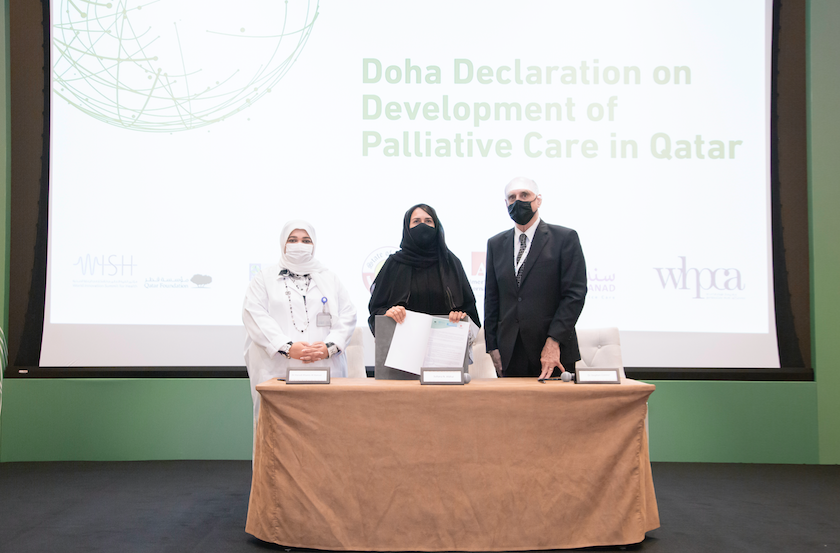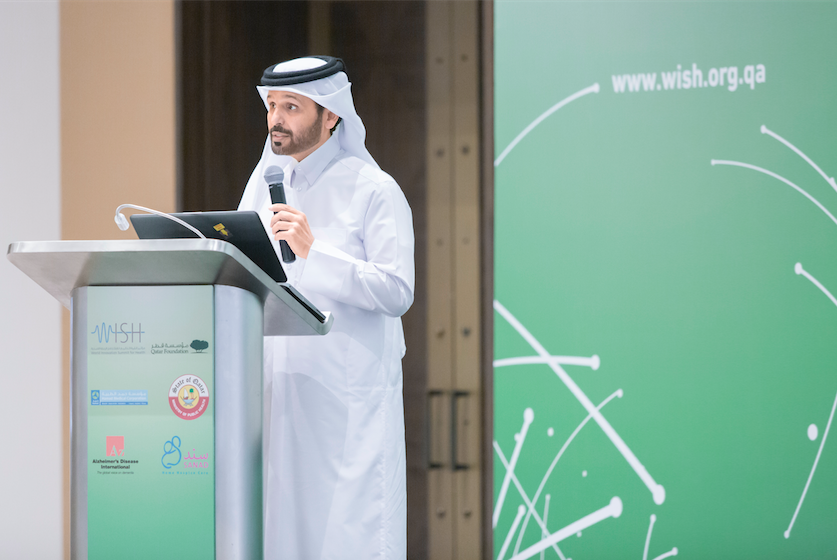WISH CEO Stresses The Inextricable Link Between Climate Change And Health At COP 26
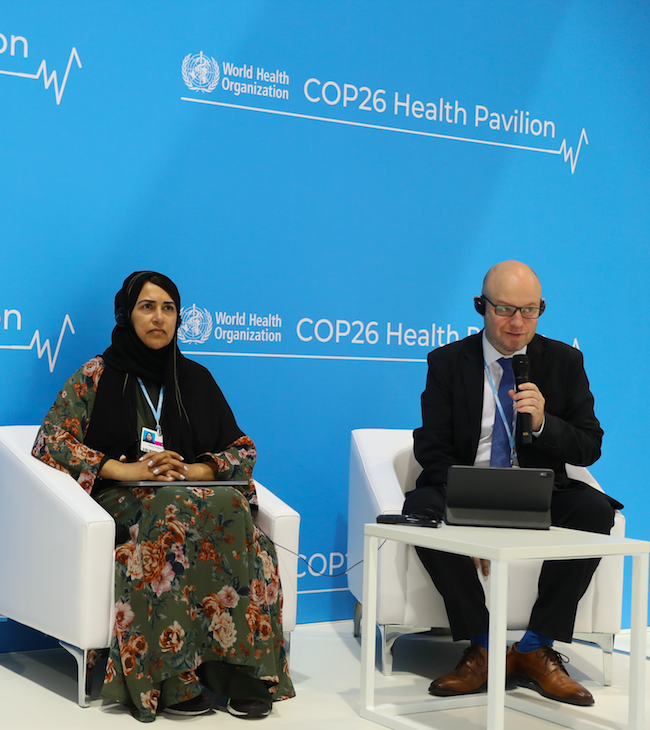
“Whilst it’s incumbent on all practitioners and policymakers to address climate change and mitigate its effects on human health, I have not seen that as a central message of COP26. People often need clear and concise evidence that climate change is directly affecting them, and I think that the opportunity to put that message to people has been lost.”
These were among the opening remarks of Sultana Afdhal, CEO of the World Innovation Summit for Health (WISH), Qatar Foundation’s (QF) global health initiative, as she spoke during a session at the 26th UN Climate Change Conference (COP26) in Glasgow last week.
Moderated by WISH’s Director of Partnerships and Outreach, Nick Bradshaw, the session was held under the tagline ‘Climate Action for Health, Health Action for Climate’ to emphasize the two issues being inseparable in the realm of policy making and action.
Held at the World Health Organization’s Health Pavilion at COP26, the session was hosted by Qatar’s Ministry of Public Health (MoPH) and WISH with the support of the United Kingdom Foreign, Commonwealth and Development Office (UK FCDO). The panel comprised speakers from areas of government, policymaking, healthcare, environment, community and sport, and representatives from MoPH, UK FCDO, Qatar Green Building Council, Supreme Committee for Delivery and Legacy, and Arab Youth Climate Movement Qatar, were present.
Afdhal urged governments and other publicly influential organizations to implement better communication practices, to ensure that individuals are not only educated about the effects of climate change on various aspects of their lives, but that they are then empowered to take practical steps towards broader societal change.
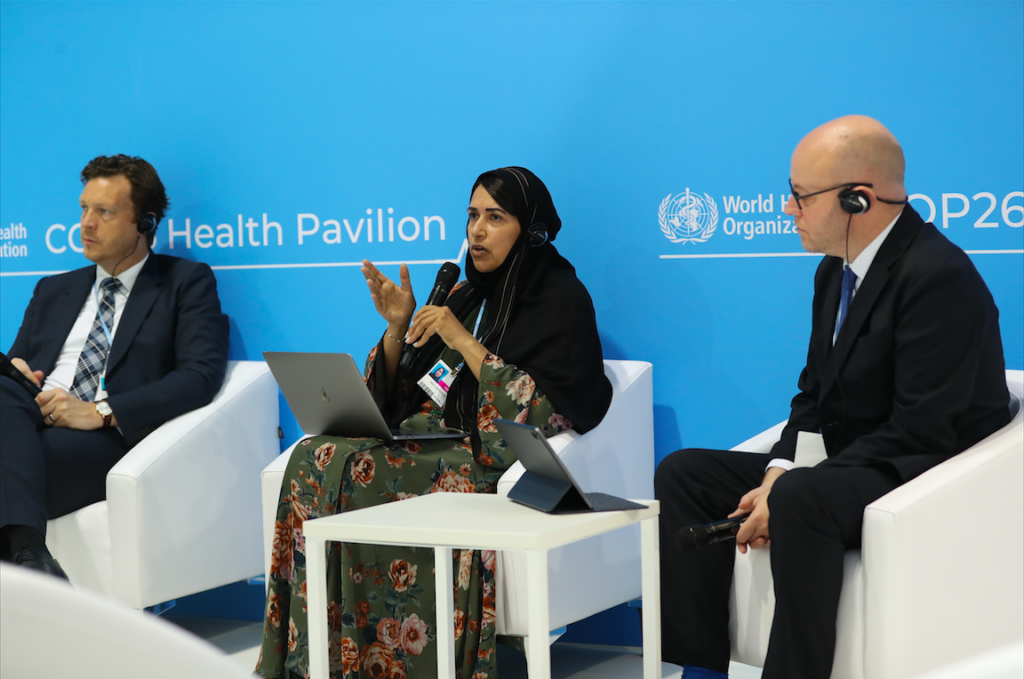
“We need the messaging to be clearer. Telling people why it [climate change] matters in terms of their health or their finances, and doing this in an innovative and targeted way, is vital. Secondly, simply providing information to people does not necessarily translate to behavior that will contribute to real change.”
She encouraged the use of behavioral insights – a term that refers to gaining an accurate and evidence-based understanding of how people behave and make decisions – to reframe and improve communications. “With behavioral insights, we can identify the need for nudges, overcome biases and barriers to penetrate the sometimes vague and often over-messaging of the climate change debate.”
During the panel discussion, Afdhal also spoke of the three research reports that WISH commissioned last year, focusing on some of the key health areas being affected by climate change.
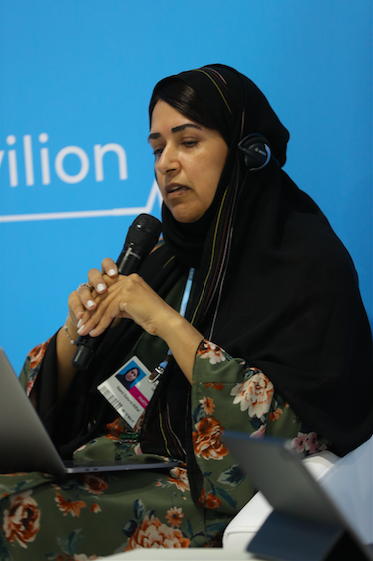
Its Protecting Health in Dry Cities report examines a very sparsely researched area of how to mitigate the effects of increased desertification and ensure good health in arid, dry regions. “A topic that is becoming more and more relevant not only to our region, but different parts of the world,” said Afdhal.
The Climate Change and Communicable Diseases report highlights how increasing global temperatures have already expanded the areas where climate-sensitive infectious diseases such as malaria and dengue thrive, and how floods and droughts that inhibit access to clean water contribute to the spread of disease.
The third report of the series, Health in a Climate Crisis, presents a framework for highlighting the threat posed by climate change that is adding to the global burden of death and disease. Afdhal commented that this report is also a call to action for global health leaders: “Like all of our reports, it presents evidence-based research with clear, actionable policy recommendations.”
She then presented ten action points that include ensuring that climate change resilience plans are in place, funded and acted on; mobilizing the health workforce to speak up; and requiring healthcare suppliers to report on their environmental footprint.
“Healthcare leaders are among society’s most authentic messengers, with public trust currently very high as a result of the COVID19 pandemic,” said Afdhal, pointing out that with 170 million workers and eight trillion dollars in spending, healthcare has tremendous market power at its disposal.
“The healthcare sector can, and should, lead the transition to environmentally sustainable, health-promoting societies.”
If you missed the session, you can watch it at https://bit.ly/3GYXmUN


